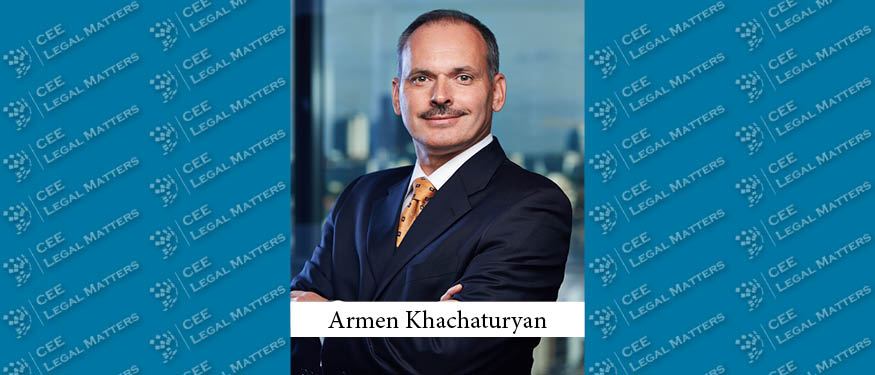Amid the daily disruptions of war, Ukraine’s legal market has shifted focus to urgent areas like military law, sanctions compliance, and damage compensation, while adapting to workforce shortages and declining revenues, according to Asters Senior Partner Armen Khachaturyan.
“The legal and business landscape in Kyiv has undergone dramatic changes amidst the ongoing war, creating unprecedented challenges for firms and individuals alike,” Khachaturyan says. “Life in the capital is marked by daily air raid sirens and emergency procedures. When sirens sound, office workers are given minutes to evacuate to bomb shelters, and those on the way to work are often advised to return home. Many law firms and businesses have adopted flexible work policies to accommodate these disruptions.” However, he notes, “certain practices, like litigation, require physical presence and court appearances must continue with all possible safety precautions.”
Despite these difficulties, Khachaturyan says that the legal market has adapted impressively. “While workloads and project types have shifted, firms are managing to cope. Recent rankings reveal that the leading firms remain operational, although financial reports indicate significant downturns in revenues.” Pre-war traditional practices like “M&A, banking, and energy have declined, while military-related practices, conscription law, and defense industries are thriving,” he notes. “Firms have developed niche expertise in navigating complex regulations, particularly concerning conscription exemptions for critical industries, which clients highly value. This shift has also given rise to smaller boutique firms, specializing in areas like military law, that have proven both resilient and successful.”
Khachaturyan stresses that certain industries, “such as IT, agribusiness, construction, and defense, remain active.” White-collar crime and business protection-related services are also growing in demand. “Law enforcement agencies, always a challenge for businesses, have intensified their activity during wartime, creating additional demand for legal expertise in sanctions compliance and ownership regulations,” he says. “New laws targeting Russian-linked entities have further added to this demand.”
Khachaturyan says that foreign investment remains limited. “Some clients, particularly in construction, have moved operations to safer locations like Poland, awaiting stability before resuming projects in Ukraine,” he emphasizes. “While ongoing support from the EU and international financial institutions provides some relief, private investments have slowed significantly, with many plans postponed until greater clarity emerges.”
One critical area of legal focus, according to Khachaturyan, is the compensation for war-related damages. “Firms are assisting businesses and individuals in documenting losses and navigating the complex processes required for claims. Efforts to access frozen funds globally are underway, but the path to recovery often involves arbitration or the European courts, and the forum for such claims remains unclear. A newly established registry is beginning to accept individual applications, signaling progress, but much work remains to be done.”
The labor market is another area under strain, Khachaturyan continues. “Migration and conscription have reduced the talent pool, making employers more attentive to retaining and attracting employees,” he points out. “Recruitment continues, with a focus on building expertise in high-demand areas like IT law. Internship programs have also become a crucial pipeline for new talent, with several participants receiving job offers.”
On the legislative front, Khachaturyan says “Ukraine’s parliament has prioritized urgent wartime needs. Recent changes include increasing taxes to support the military and tightening conscription regulations.” Khachaturyan adds that “the government has also introduced initiatives like war risk insurance to attract investment, with public-private partnerships playing a key role. These measures aim to reassure investors and facilitate the export of critical goods like grain, despite ongoing geopolitical challenges.”


